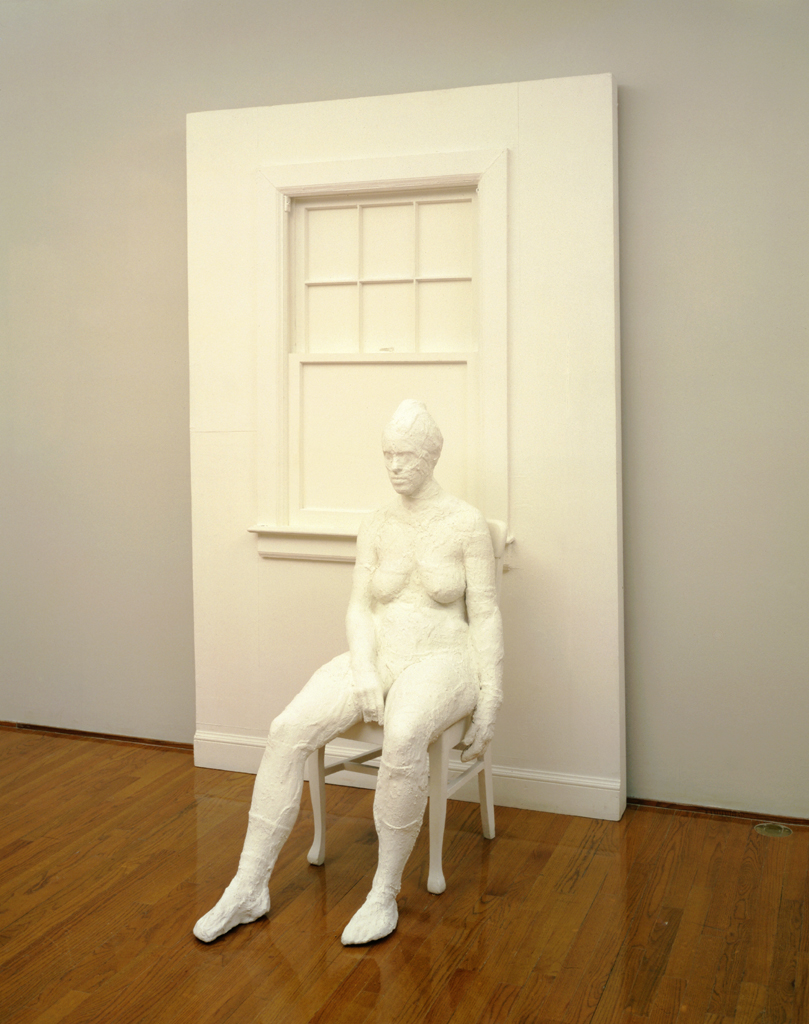George Segal
(The Bronx, New York, 1924 - 2000, South Brunswick, New Jersey)
Girl Sitting Against a Wall II
1970
Painted wood, plaster and glass
91 x 60 x 40 in. (231.1 x 152.4 x 101.6 cm)
Collection of the Akron Art Museum
Purchased with funds from the Fiftieth Anniversary Gala
1972.20 a-c
© The George and Helen Segal Foundation/Licensed by VAGA at Artists Rights Society (ARS), New York
More Information
George Segal used living models to create his sculptures. He wrapped them in plaster-soaked bandages and let the materials harden. He then cut the plaster away from the models’ bodies and reassembled the hollow forms. The result: Segal’s white figures seem at once lifelike and eerily still—forever frozen in a mummified state. Segal’s sculptural “environments” combine cast figures with commonplace objects—chairs, tables, signs and wall fragments— to evoke a specific emotion, memory or moment in time. However, the uniform coat of white paint he gives this tableaux suggests a distanced or other worldly reality. Slumped in her chair and staring straight ahead, this figure conveys a sense of exhaustion or boredom. Her unidealized nude form is not erotic but rather suggests a dejected psychological state.

